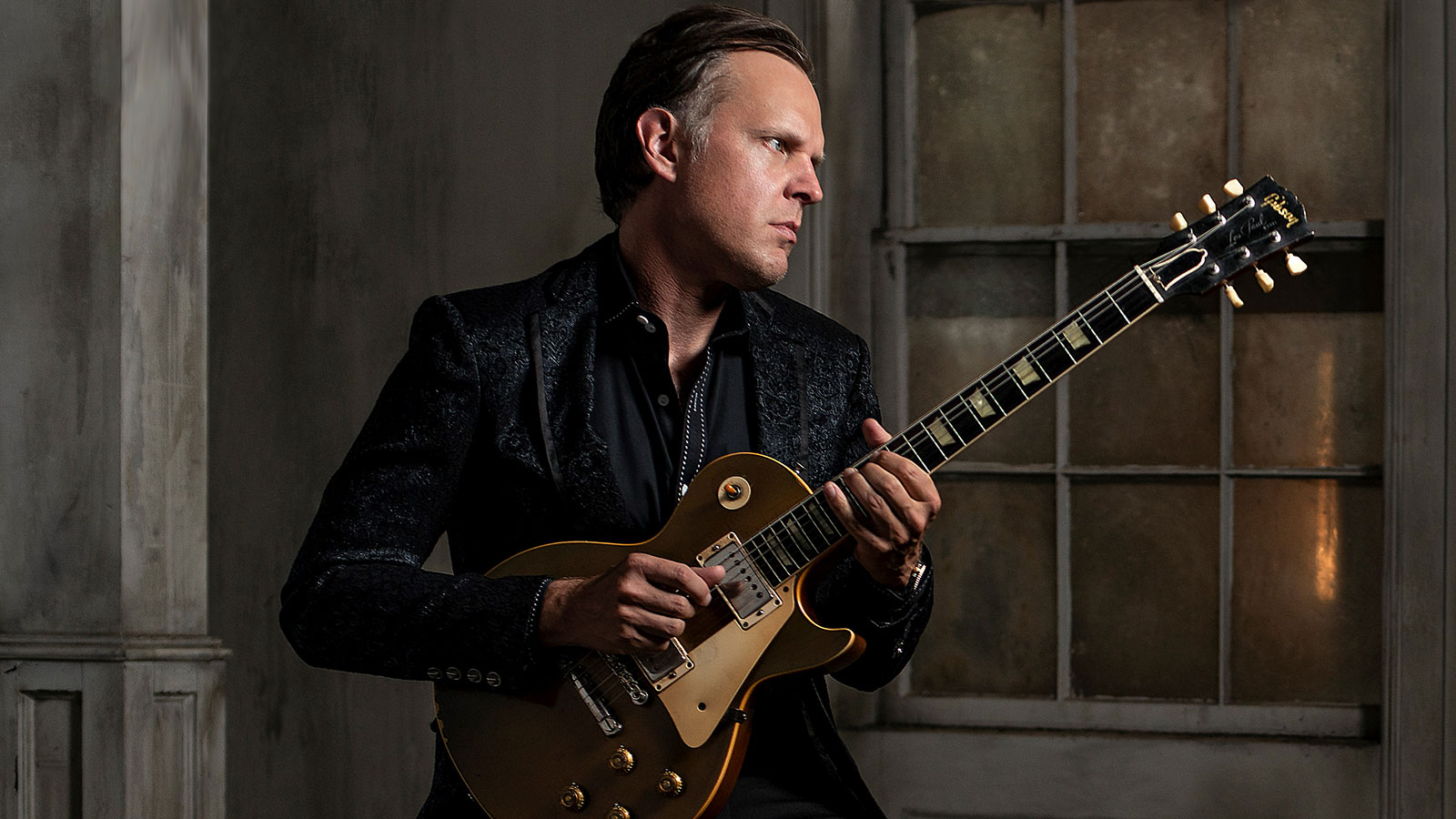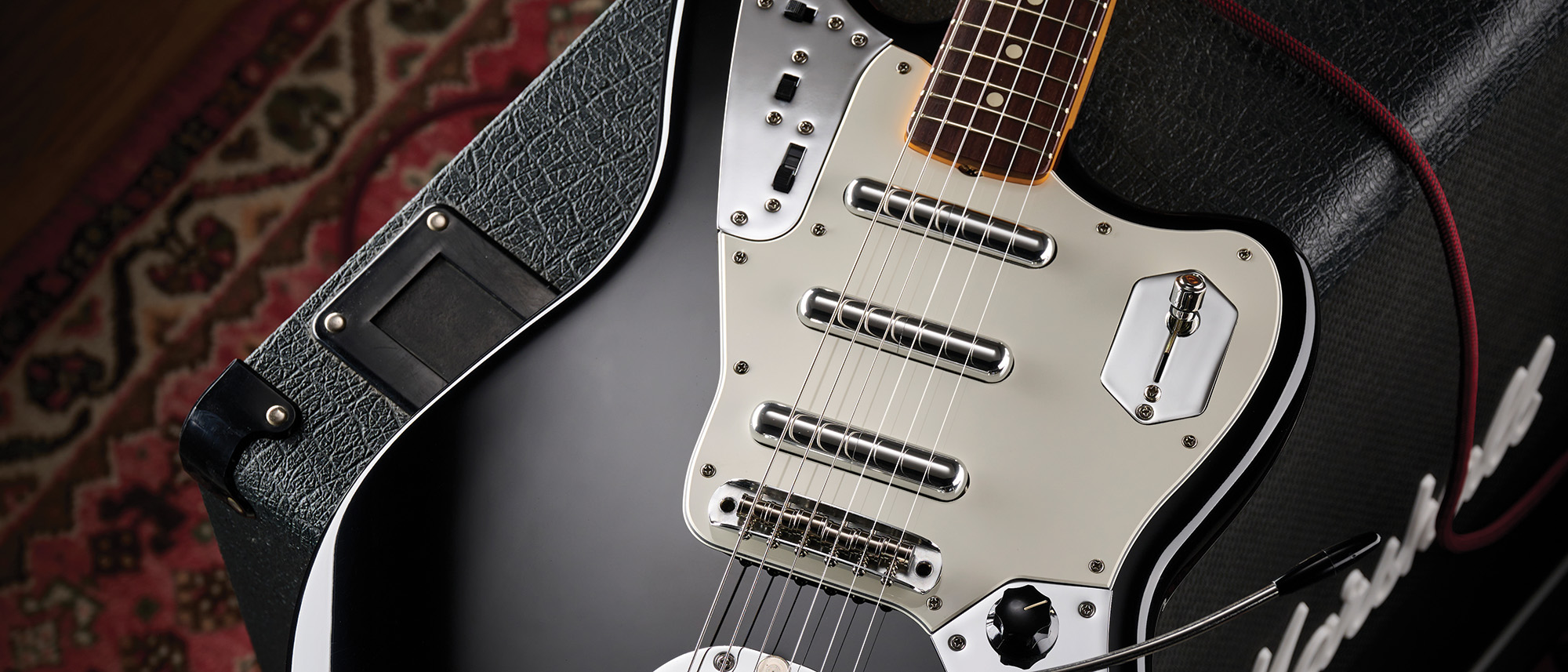Joe Bonamassa: “Being semi-retired for a year and a half has given me a new lease of life”
The blues-rock maestro on how a no-frills recording approach didn't get in the way of his most musically ambitious record to date

All the latest guitar news, interviews, lessons, reviews, deals and more, direct to your inbox!
You are now subscribed
Your newsletter sign-up was successful
Joe Bonamassa is Zooming Total Guitar from his tour bus, California’s Interstate 5 rumbling under its wheels. “We’re popping our head up,” he says. “Remembering what it was like in the good old days. Then maybe we’ll get whacked back down. But we’ll get through the summer run, at least.”
Whatever the future may hold, for now this guitar great can resume the relentless concert work that’s helped make his name. But the recent enforced moratorium on live music seems to have changed him.
“Being semi-retired for a year and a half has given me a new lease of life,” he says. “The self-imposed pressure that probably made me very successful for a decade makes no sense anymore. If I can’t have fun making records and touring, then what’s the point? For about the last 15 years of my life everything was just on 10. If you get into that step-and-repeat, it weighs you down, and it almost broke me. So if I had to give myself advice, it’d be, ‘Have more fun.’”
There’s much fun to be had on Bonamassa’s new studio album. Time Clocks follows Royal Tea, his classy homage to the British Blues Explosion. That was recorded in the opulence of Abbey Road’s Studio One, while Time Clocks was cut over nine days in February at Germano Studios, New York City.
“We were still in pandemic fever,” Bonamassa says, “so we kept the personnel to a minimum, and did a New York-style record. I just grabbed a ’59 Les Paul Standard, a ’54 Strat, an old Tele, an Esquire and the one acoustic I have in New York – a rare, 00-18 shade top sunburst Martin from 1937.
“I grabbed two Fender Deluxes, and had one of my signature Fender Twins sent over so I had something with a bit of volume. The only pedals I remember using were a Klon and a wah. Usually I’m the guy with the full ‘ego set-up’; this time we literally loaded the gear into a cab and drove it down to the studio. But oddly enough, this is probably my most ambitious record, production-wise.”
If you’ve heard the epic, seven-minute lead single Notches – complete with tablas, didgeridoo and ‘sitar’ (actually a processed Rickenbacker 350 12-string) – you’ll know what he means. The album’s widescreen sound is down to Bonamassa’s long-time producer, Kevin Shirley.
All the latest guitar news, interviews, lessons, reviews, deals and more, direct to your inbox!

Remarkably, while Bonamassa and band were recording on the floor in New York, Shirley was sitting at his studio desk in Sydney, Australia, and producing in real time via Zoom.
“We’d start at 2pm,” the guitarist says, “and Kevin would be up at 2am in Sydney. Both he and Germano have SSL Duality consoles, so through his own monitors Kevin could hear the sub-mixes of drums, guitar and bass as they went down, just with about a second of latency. On the first day it was a little bit weird – Kevin was on our screen grooving, about a second behind – but once you got your head around that it was okay.”
With final audio sent to Shirley, he then recruited artists including keyboardist Lachy Doley, backing vocalists Mahalia Barnes and Juanita Tippins, and Bonamassa’s long-term string arranger, Jeff Bova. The power ballad title track and The Loyal Kind (its folky, D Dorian intro riff doubled by acoustic and penny whistles) both stem from the Royal Tea writing sessions in London.
There’s a hint of The Bluesbreakers’ All Your Love in the strutting Question And Answers (its solo peppered with some tasty pinch harmonics), and a dash of Led Zeppelin circa Kashmir in Curtain Call, with its Arabian-sounding strings and exotic G – G#/G chord sequence.
“There's definitely nods to British rock,” the guitarist agrees. “We can’t help ourselves, especially Kevin, because we like that music so much. It’s fun to give things a different twist. It keeps us interested, which is good because after a while, you lose your barometer of ‘What are we making records for?’ You’ve just gotta ask, ‘Am I into this?’
“The nature of the material dictates where you’re at. These were big songs, we’ve done a lot of different kinds of records, so we thought, why not just go all out? I trust Kevin implicitly and when I heard the final album, I was like, ‘This thing sounds great!’”
So for this tour and beyond, he’s armed with fresh material, and a whole new perspective. After nearly 32 years of solid graft, of lining up one project after the next, Bonamassa is determined to smell the roses, to have fun: “Last year was the year off that I needed to take for myself, but never would have taken,” he says. “And now that we’re back, I’m ready to go to work.”
- Time Clocks is out now via Provogue / J&R Adventures.
Grant Moon is the News Editor for Prog magazine and has been a contributor to the magazine since its launch in 2009. A music journalist for over 20 years, Grant writes regularly for titles including Classic Rock and Total Guitar, and his CV also includes stints as a radio producer/presenter and podcast host. His first book, Big Big Train - Between The Lines, is out now through Kingmaker Publishing.



